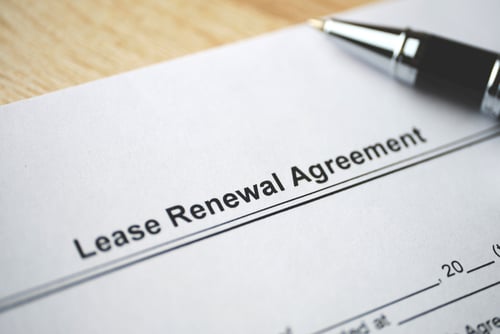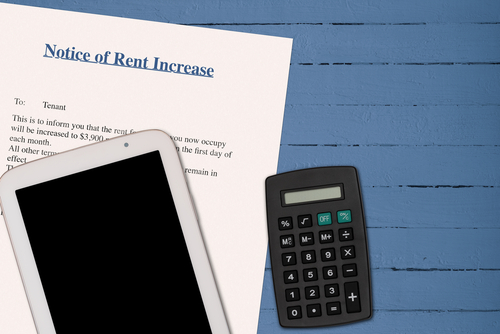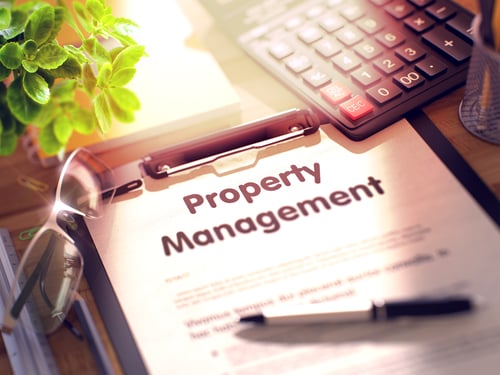
When a lease is about to end, landlords have a decision to make–find a new tenant or renew the lease agreement. Depending on the situation, the answer may be apparent. After all, finding new tenants can sometimes be difficult, and no landlord wants to deal with vacancies. However, if your current tenant isn’t the best occupant for your rental property, you may want to consider it. Before you decide, let’s go over how rental property lease renewals work.
What is a Rental Property Lease Renewal?
A rental property lease renewal is when you or your tenants don’t want to end the lease, so you renew it. There are plenty of reasons why tenants and landlords want to implement a lease renewal. After all, keeping turnover rates and vacancies low is the ultimate goal. Additionally, tenants that are content with their current living situation likely don’t want to move to a new rental property. Next, let’s go over some of the basic rules of lease renewals.
How Do Lease Renewals Work?

A lease renewal policy is a mutual agreement between landlords and tenants that allows the lease to renew once it ends. Lease renewals could be month-to-month or for a full term, depending on landlord and tenant preferences.
Washington DC property managers typically offer a lease renewal at least 90 days before the original agreement is up. This can be done in person, via email, or by regular mail. The goal here is to give your current tenants a bit of time to think about it and enough time for you to find a new tenant if they decline the offer to renew.
If a tenant decides to renew their lease, landlords should send them a lease renewal form. Keep in mind that the lease renewal clause must be separate from any of the terms on the original lease. Then, the tenants must sign the agreement. If landlords cannot show physical proof of a tenant’s signature, they cannot renew the lease agreement.
Benefits of Lease Renewals
There are benefits to lease renewals for both tenants and landlords. For tenants, it ensures you have a steady, familiar place to live for as long as you want to. In addition, you don’t have to find a new rental property and go through the entire moving process after only a year of occupancy.
On the other hand, it also poses a ton of benefits for landlords. Since no vacancies and low turnover rates are the ultimate goals, renewing a lease is the perfect way for Washington DC property managers to avoid these scenarios.
Additionally, landlords may be able to increase their rent prices when a tenant renews their lease agreement. Although that’s not necessarily desirable for tenants, landlords inevitably must raise rental rates sometimes. If you plan to increase the monthly rent, you must notify your tenant in your renewal offer at least 90 days before the lease is up.
How to Evaluate Tenants for Lease Renewal Offers
Not all tenants will want to renew their lease, and not all landlords will want to offer a renewal policy. That said, there are certain factors to look for in a tenant to decide whether or not a lease renewal is a good idea. Let’s go over how landlords can evaluate tenants before offering a lease renewal.
- Is the Tenant Reliable?
- Does the Tenant Meet Your Qualifications?
- Are Roommates Living in the Rental?
Is the Tenant Reliable?
Every landlord needs reliable tenants. If they pay their rent on time each month, report any damages or maintenance issues, and take care of the property, they’re typically pretty reliable. On the other hand, if you are constantly receiving late rent payments and notice that maintenance issues go unreported, you may want to avoid renewing a lease with this tenant.
Does the Tenant Meet Your Qualifications?
Another factor to consider before renewing a lease agreement, another factor is–does the tenant meet your qualifications? Some landlords have particular qualifications that tenants must meet before living in their properties. For instance, the initial screening process ensures your tenants have a solid income, good credit, and a clear background check. Of course, some of these things may change during a tenant’s occupancy. So, before you renew their lease agreement, make sure they still qualify to live in your rental.
Are Roommates Living in the Rental?
If you have multiple tenants or roommates living in one rental property, renewing the lease can be tricky. Often, not every roommate will be on the same page with renewing the lease. However, you may be able to get one tenant on board if one roommate decides to move out after the initial term.
If one roommate wants to renew the lease and the other decides to move out, landlords must create a new rental agreement. After all, the terms are different, and there will be fewer people occupying the property. Although it can seem hectic to renew the lease for just one roommate, open communication is critical during this time.
Factors to Consider Before Renewing a Lease

Aside from tenant evaluations, there are more factors for landlords to consider before renewing lease agreements. For example, a renewal policy may look different depending on the original rental agreement. If it’s a month-to-month lease, the renewal policy may differ from a fixed-term lease. Either way, both types of contracts are renewable. Let’s discuss some of these differences.
Month-to-Month Rental Agreement
It’s pretty self-explanatory, and a month-to-month lease is exactly what it sounds like. Each month, the rental agreement will automatically renew unless the tenant or landlord provides notice of non-renewal. Typically, you should give 30 to 90 days’ notice, depending on the lease agreement and local laws.
A month-to-month lease agreement is ideal for both tenants and landlords since it provides more flexibility for both parties. Tenants aren’t stuck in a lease that ties them down for a year or more, and landlords can change terms or raise their rent prices when they choose.
Fixed-Term Rental Agreement
A fixed-term rental agreement is different from a month-to-month lease because it lasts for a fixed period of time. Most rental contracts last at least one year, with the chance to renew them after the year is up. If both parties agree to renew the lease after the year, landlords must write up a new lease and have both parties sign to validate it.
Renewing a fixed-term rental agreement is also ideal for both landlords and tenants since it gives tenants a comfortable, familiar place to live for another fixed term. On the other hand, it gives landlords a sense of comfort knowing that their rental is occupied for another year, or however long the time is. Additionally, it gives landlords the chance to increase the monthly rent or make changes within the lease.
How to Ensure a Smooth-Running Rental Property Business

Running a rental business can be stressful and time-consuming. Keeping up with every tenant’s lease agreement can become a full-time job. Landlords that have more than one rental property can benefit from hiring a full-service property management team.
Like those at Bay Property Management Group, a team of trusted professionals can help your rental business succeed. With tenant screening processes, monthly rent collection, eviction services, and more, we can care for all your rental property needs. Contact us today if you need management services in Baltimore, Philadelphia, Northern Virginia, or Washington DC.

